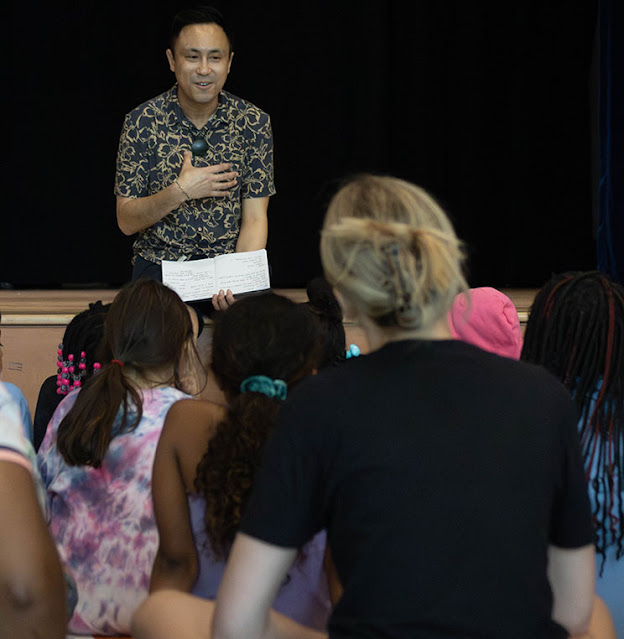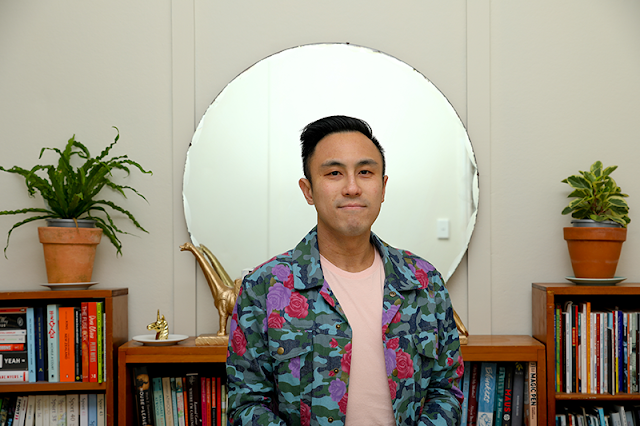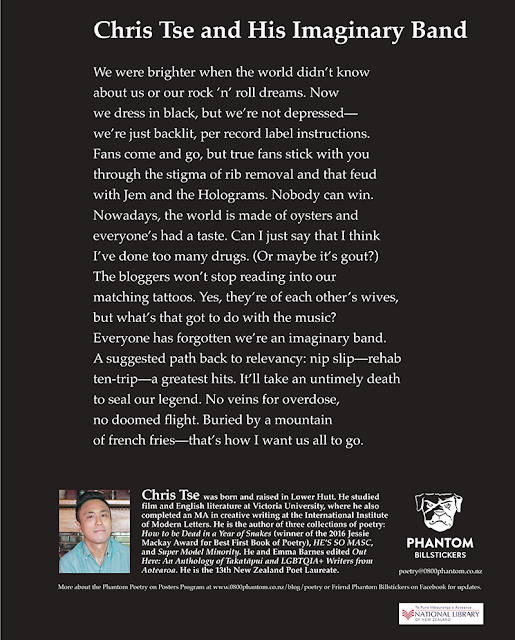I’m trying to get into the habit of writing new poems to read at each event I participate in as the Poet Laureate, and I knew that for my inauguration weekend, I wanted to read something that acknowledged the Poets Laureate who have come before me.
I decided to write an acrostic using the surnames of the 12 previous Laureates. I’ve found that the acrostic form has forced me to write more linearly than I usually do. Thus each line revealed itself one by one over a couple of months as I chipped away at the poem. The final result is part homage and part manifesto, a testament to the power of poetry to change hearts and minds.
Number 13
Must be the way a poem kickstarts a world into being that
alters how time leans into itself. The rise and fall of oceans
never felt so slow or sticky on your skin, salt crusting between
heartbeats. The delicious moon—all-seeing and all-knowing—
inches across the night sky while sad songs crackle on the
radio. Must be fire and flood swooping in to play their part when
everything is bent beyond recognition. Pray for the good old days.
The before times. The once and once more. We have a habit of
U-Turning when faced with not liking where we’re heading. Oh
wicked, stubborn fate—who’s to say that we can outpace the
hardest of truths? That we are fallible. That we are fools for
attempting to chart our own lives. Poets will ensure that these
revelations are broken to us in the kindest way, like a parent
easing their child into a bedtime ritual. The mind wanders,
skips over crucial details when recalling a memory
made at our most vulnerable to scarring. Are those made
in usual circumstances worth holding in the eternal vault?
Take dreams as an example: there is nothing unusual or
humbling about sleep. Most dreams aren’t memories worth
entertaining. And yet, I have a recurring dream in which
RuPaul asks, ‘What would you say to 10-year-old Christopher?’.
This is the trope I hate the most: tricking my inner child to
unpack intergenerational trauma or make peace with what
returns to sting me when I let down my guard. If I only had
nerve to excoriate the judges for this scripted farce, but I can’t
escape expectation. I’ve been thinking about legacy and
royalty—arrangements designed to make us feel like we
belong to some powerful chain. Link by link we forge
ornamental pathways backwards and forwards, left and
right—words whistling in every direction in search of
new ears to fall upon. A poem is a key, is a map, is a
hidden place filled with the answers to questions you
only ever ask yourself when you’re alone. There’s nothing
lost between a poem and its reader—an open mind and
derring-do will take you far if you hand yourself over to
the invisible strings of each melodious line. If gravity were to
loosen its grip you might find yourself melting into the
eventide, echoes of other worlds ushering you onwards,
grief-stricken by what has been, or empowered by what is
granted a spotlight in your fantasies. I still long for utopia
or at the very least a future where we no longer need to
teach children how to hide from mass shooters stalking
their school corridors. I have excavated and polished all
my fears and frustrations to display in the world’s most
complicated museum exhibition. No amount of hurt can
quieten my overachiever Asian gene or deny my status as an
unreasonable artist with many obsessions to nurture until
everything is about race or gender or queerness. I want an
easy life too—hands free to caress the world in its velvets,
not to obsess or fret about the sharp edges that catch my
wild tongue. A pattern must be broken. A heavy heart needs
emptying to make room for courage. So I listen to Robyn’s
‘Dancing On My Own’ for the thousandth time to feel something
deeply—to unearth a memory loaded with the most powerful
emotion that will transform my simple words into a paean to
our shared joy. In the future, our desires will be soundtracked by
sadbangers—we will cry and let our cathartic tears crystallise
under our feet as we dance ourselves towards the blinding
light of better days. We will sing; we will lift our arms and
levitate, enraptured by the possibility that poetry holds.
If this is the path, if this is the way forward, let all our
voices be bold. Hear me: I am the Poet Laureate and I
approve this message! Now is the time for poetry to
nurse our crushes until we all die of embarrassment. I’ll
stand tall, facing the past, and instruct everyone to keep
tipping the scales in our favour. Assume the position—
ease our bodies against the tide that roars at us, “No
Admission”. I believe in our strength; I believe in self-
deprecation and letting poetry ruin every party it crashes.
Must be the page turning or the world tipping on its
axis, tradition glazed with the woozy afterglow of poets
reciting verse to manifest rebirth, a murmuration of
starlings filling the vast attics of our futures. If there’s
harmony there must be a chorus, voices matched and
etched into the walls we are learning to scale with ease.
Give me neither poverty nor riches; give me myself again.
Give me love and give me hope; give me myself again.
Line by line and brick by brick, build something that will
equip us to change the world. I am sentimental for a
time that does not yet exist but that I know is somewhere
out there—a half-beginning, a half-sense of something
not entirely out of reach. Must be the way a poem can
tell you where to stand to see every crack or where to
start a fire to light the way for others. Describe what you
expect to see on the other side. Tell us how you want to feel.
— Chris Tse
 |
Chris Tse (the 13th Poet Laureate) holding his tokotoko carved by Jacob Scott.
Photo by Rebecca
McMillan Photography. All rights reserved. |















